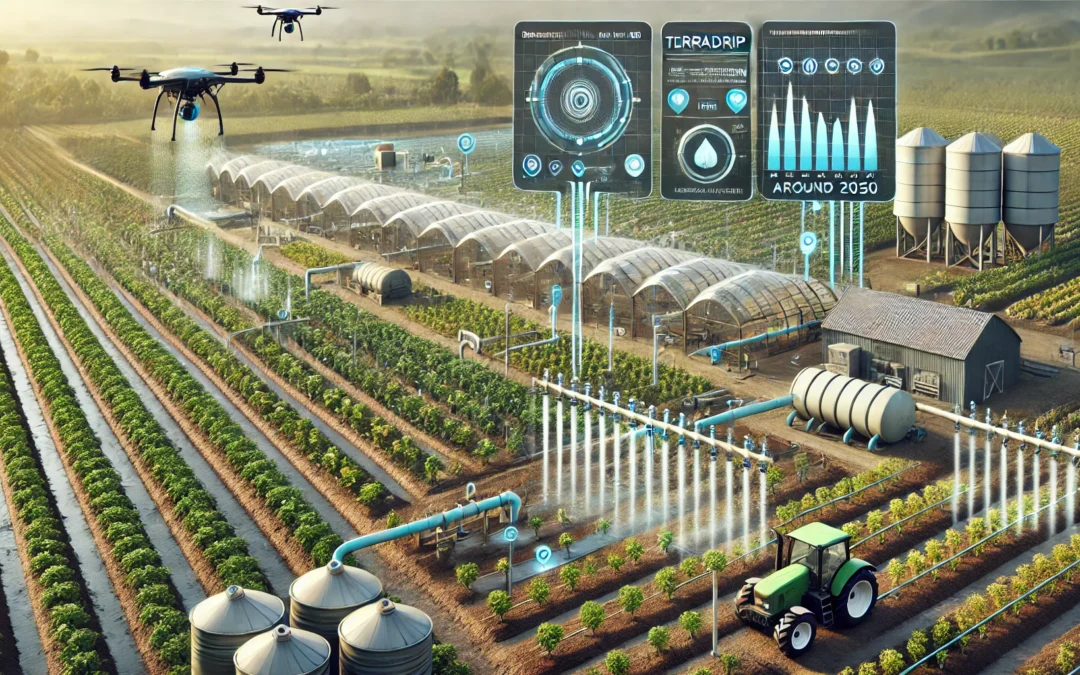Agricultural Irrigation in 2050
In our future scenario, Germany, along with many other nations, will face water scarcity challenges due to climate change, population growth, and increasing demand for food production. The traditional reliance on rain irrigated agriculture will no longer be sufficient, necessitating innovative solutions for sustainable water management.
Projected Challenges
Intensified Climate Change Impacts
- Increased drought frequencies and durations will reduce water availability for irrigation.
- Higher temperatures will lead to greater evaporation rates, further straining water resources.
- Extreme weather events, such as sudden heavy rainfall, will lead to inefficient water absorption and higher surface runoff, causing soil degradation.
Declining Groundwater Levels
- Current trends indicate a steady depletion of groundwater sources, especially in regions such as Brandenburg, where levels have already dropped significantly since the 1970s.
- Increased agricultural demand will continue to exceed natural replenishment rates, leading to restrictions on groundwater usage and potential conflicts over water rights.
Growing Population & Agricultural Demand
- The global population is expected to reach 9.7 billion by 2050, with a higher urbanization rate, increasing food production demands.
- Farmers will need to cultivate more land while optimizing water use to maintain yields without exhausting resources.

Team FANNI


Very interesting future scenario, keep up the good work!